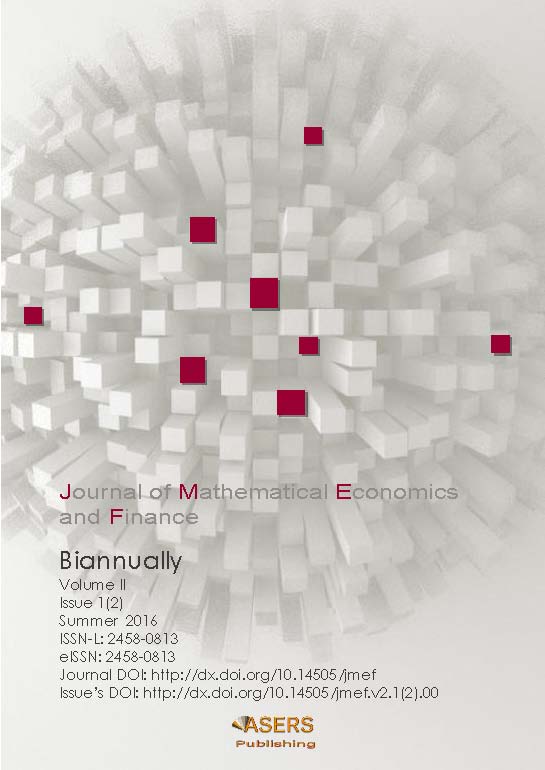Inevitability of Collusion in a Coopetitive Bounded Rational Cournot Model with Increasing Demand
Inevitability of Collusion in a Coopetitive Bounded Rational Cournot Model with Increasing Demand
Author(s): Michael CampbellSubject(s): Economy
Published by: ASERS Publishing
Summary/Abstract: A coopetitive model, using the structure formulated by D. Carfi, is constructed for a bounded rational Cournot model with increasing demand (as with Veblen goods) and any number of agents. This model has a cooperative strategy parameter that interpolates between perfect competition and collusion. For this model, H. Dixon's result of the inevitability of collusion is demonstrated using a cluster expansion idea from per collation models in statistical mechanics to prove positivity of correlation functions. Speci ficaly, it is shown that every agent's expected pay off increases as the cooperatively chosen interpolation parameter approaches the value that gives collusion. Therefore, agents will cooperatively agree to collude. When the behaviour is perfectly rational (zero temperature), collusion does not result in an increase in payo ffs, since agents produce at maximum output in competition or collusion: agents gain no benefi t for putting in the extra e ffort to collude. So, we see that neoclassical analysis (i.e., Nash equilibrium analysis) cannot explain collusion in this case. However when we consider the full bounded rational model (positive temperatures), were cover Dixon's result to see that agents will cooperatively decide to collude to maximize payo ffs. We point out that the neoclassical model is the zero-temperature limit of the general bounded rational model utilised here in accordance with the Bohr correspondence principle.
Journal: Journal of Mathematical Economics and Finance
- Issue Year: II/2016
- Issue No: 1(2)
- Page Range: 7-20
- Page Count: 14
- Language: English
- Content File-PDF

